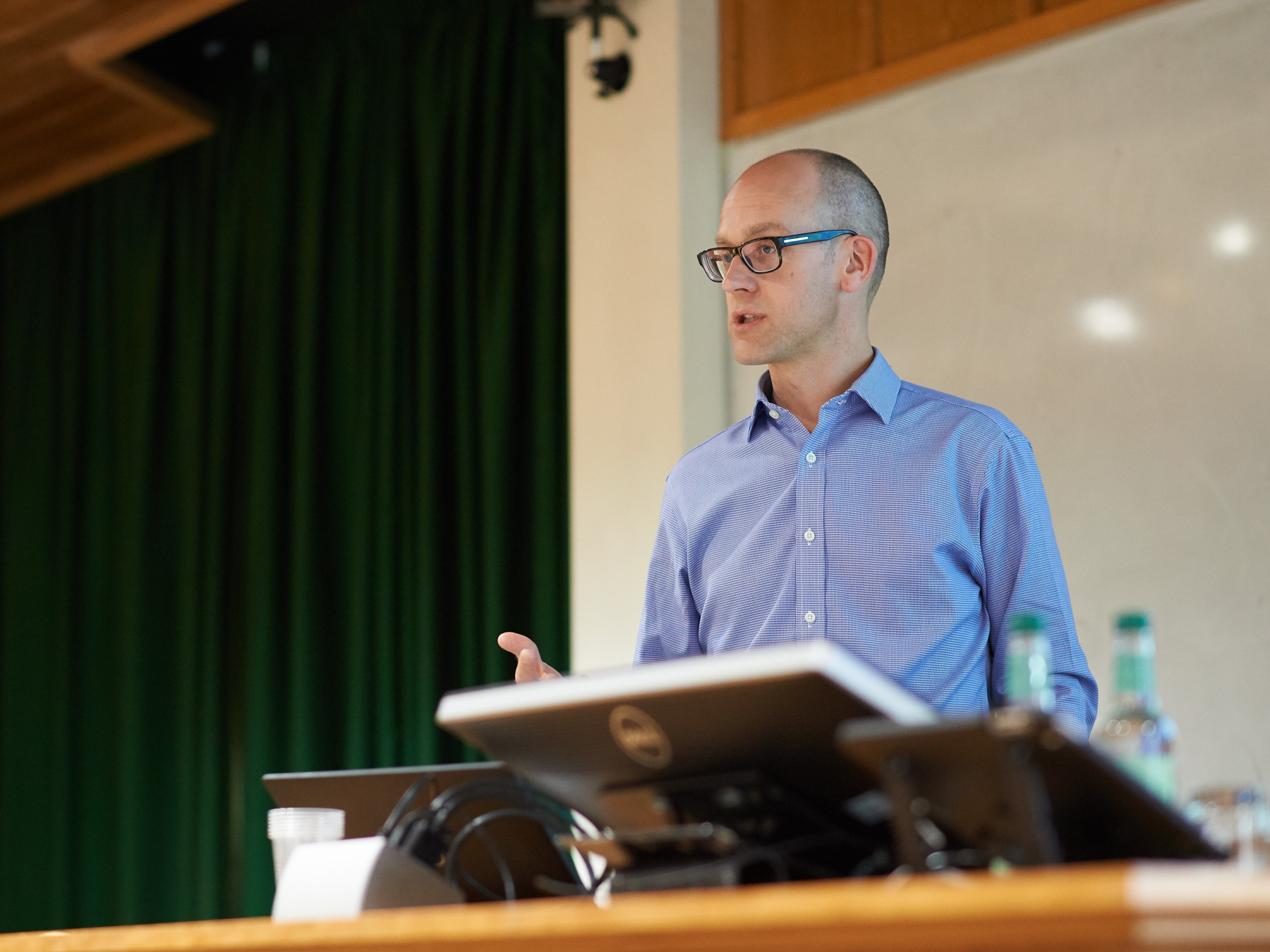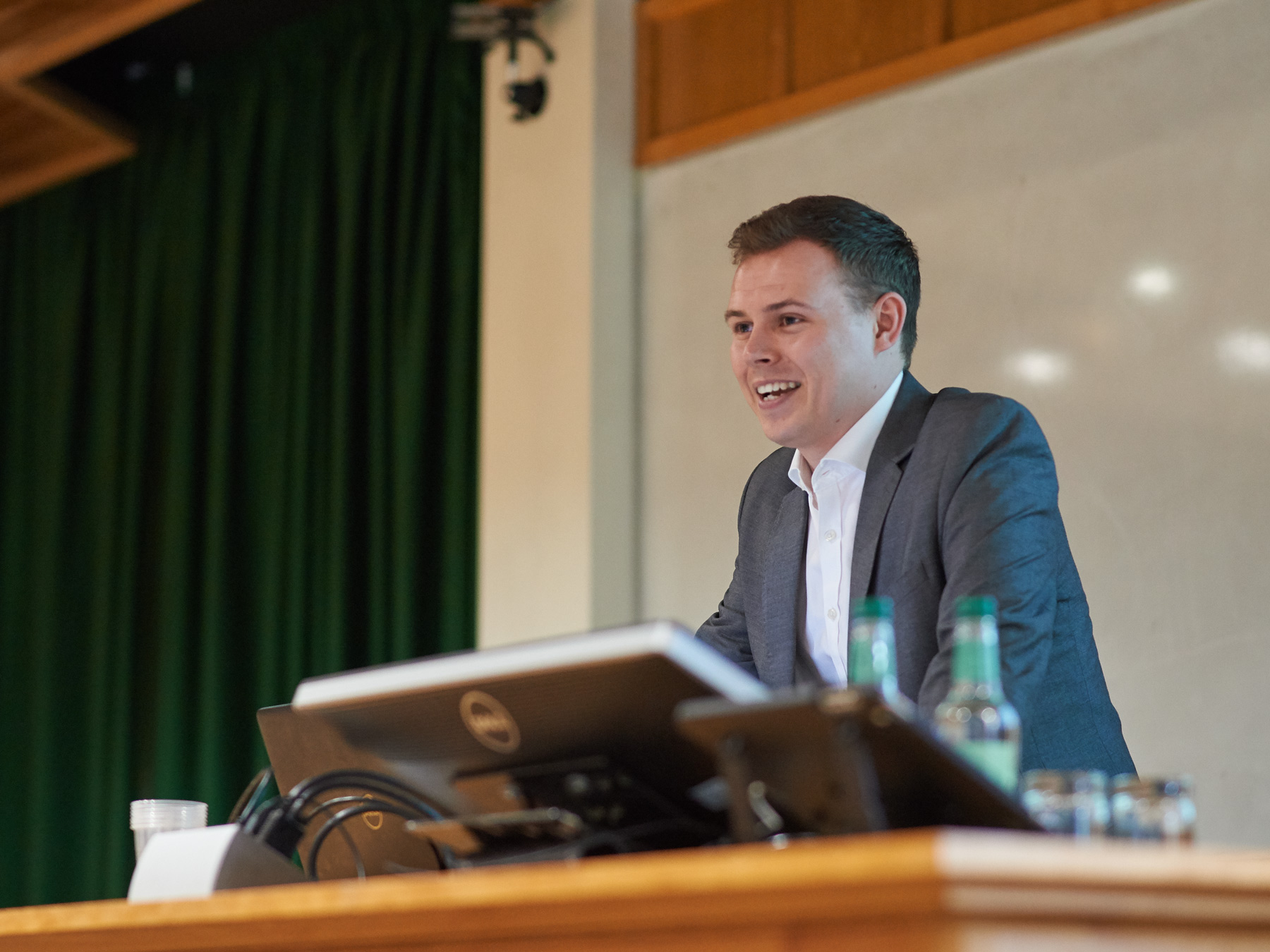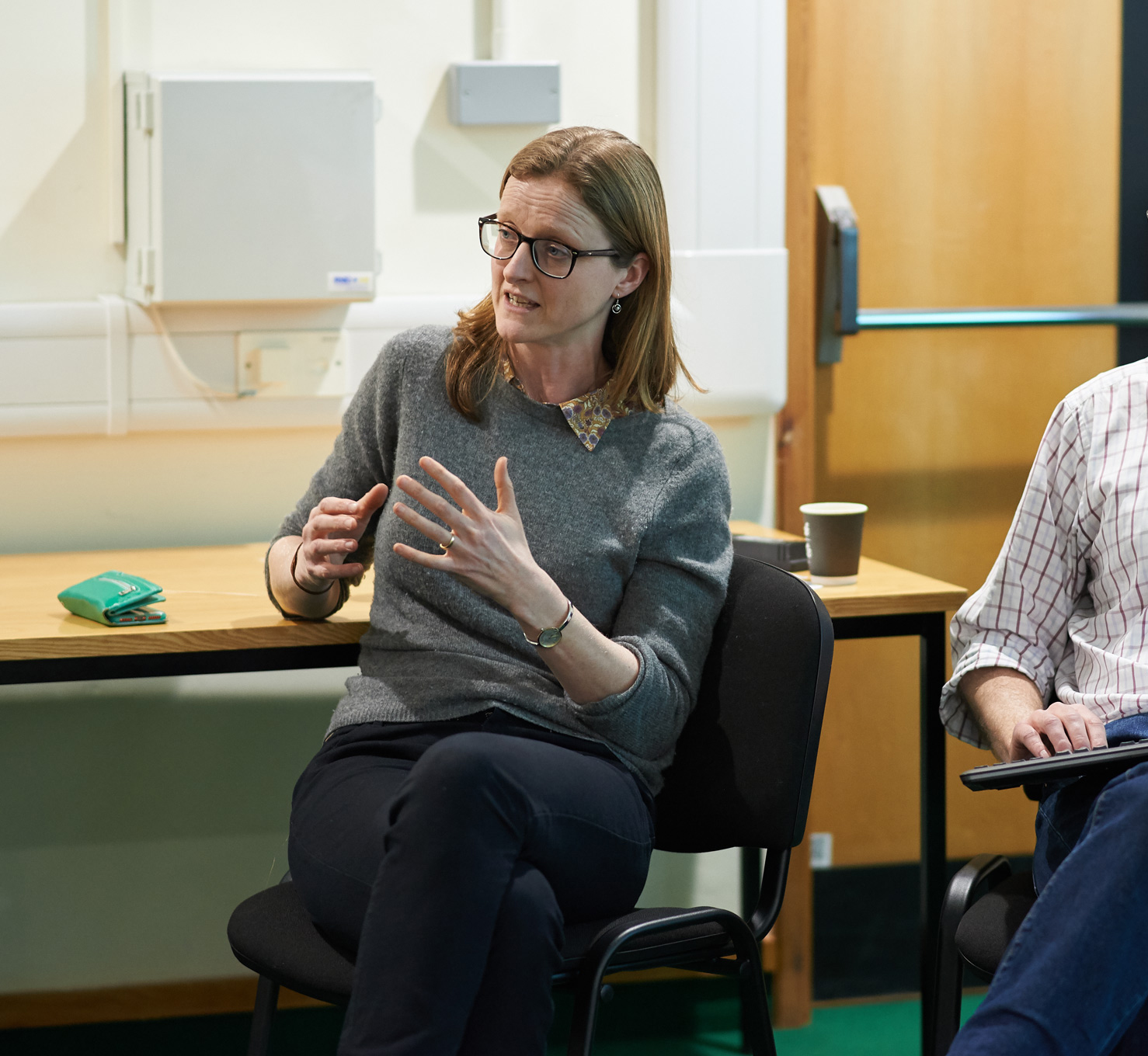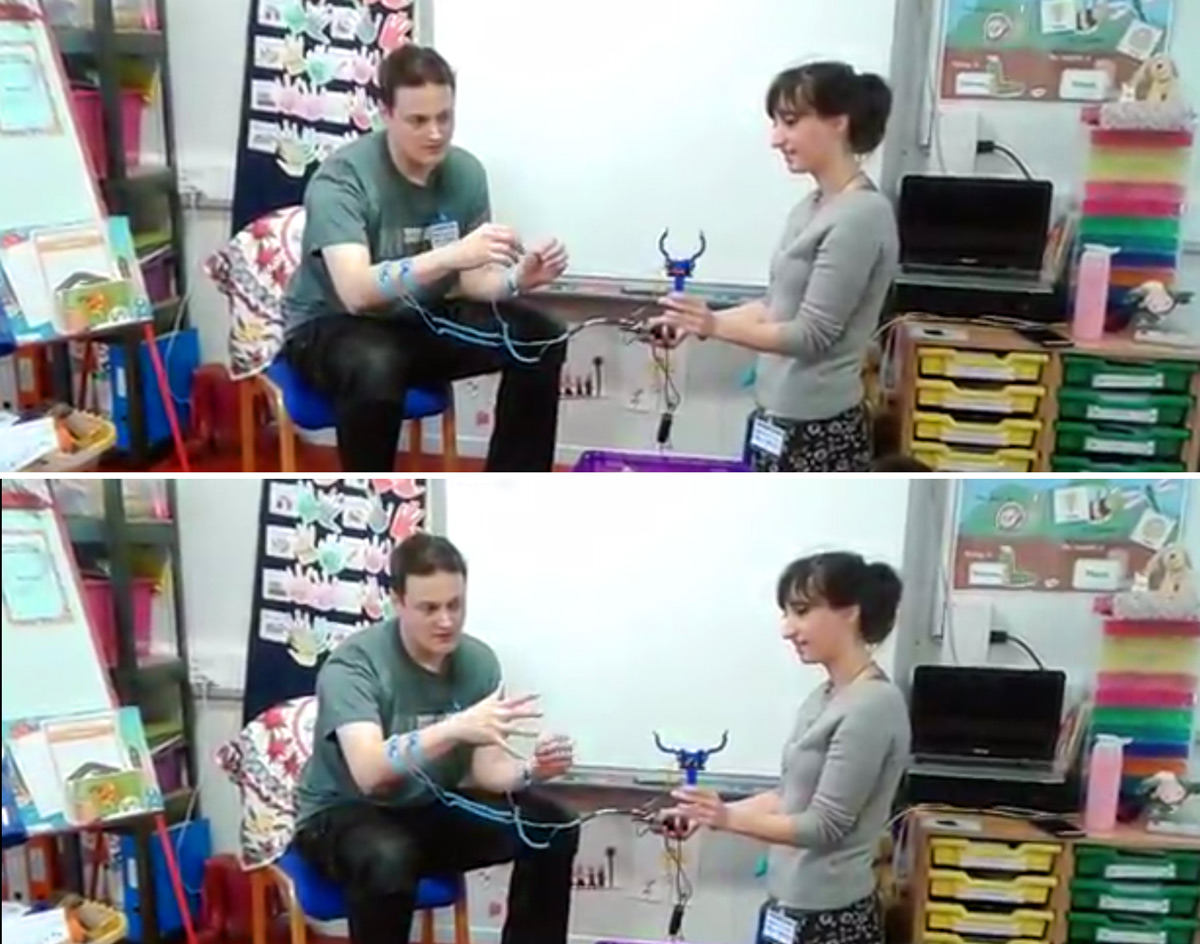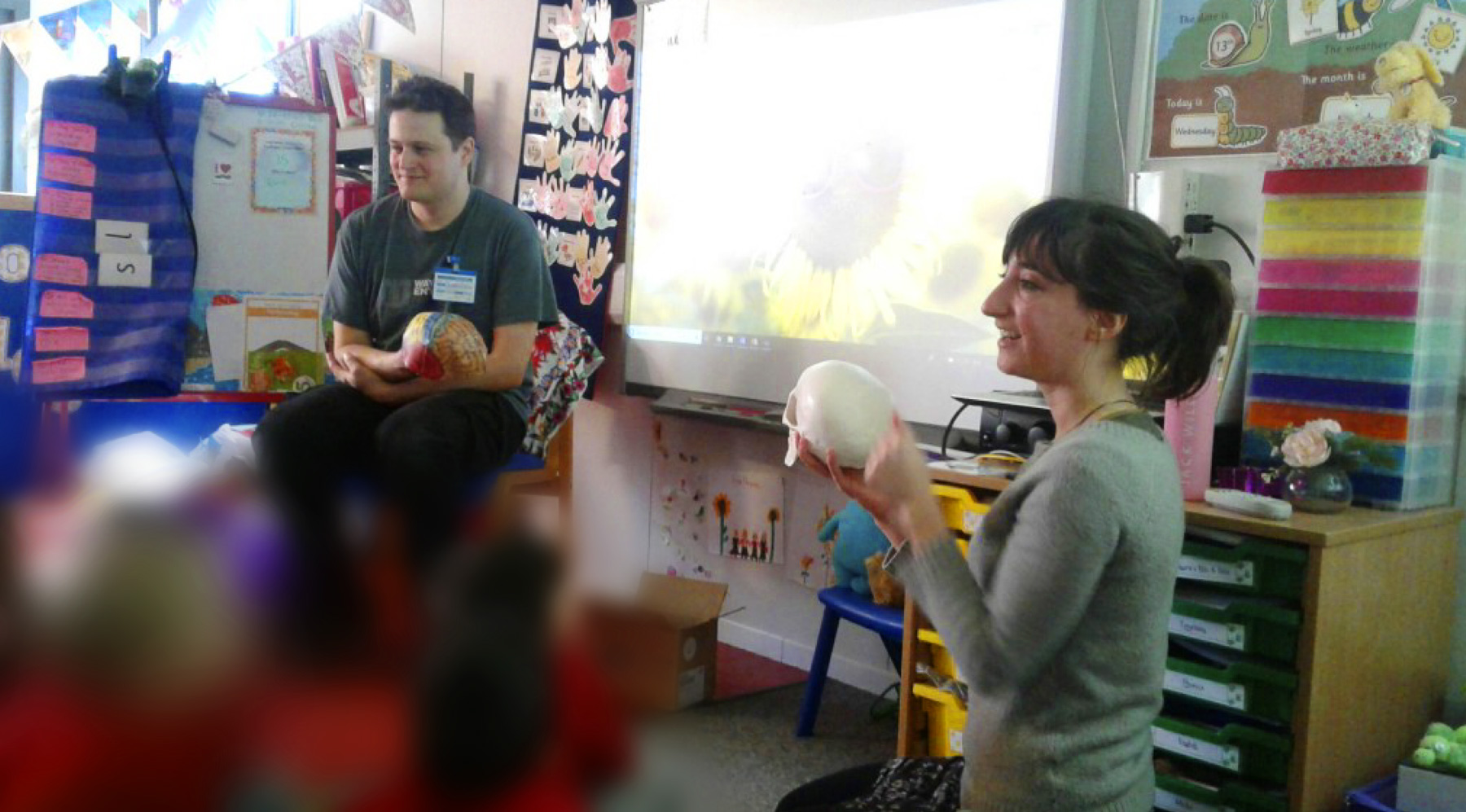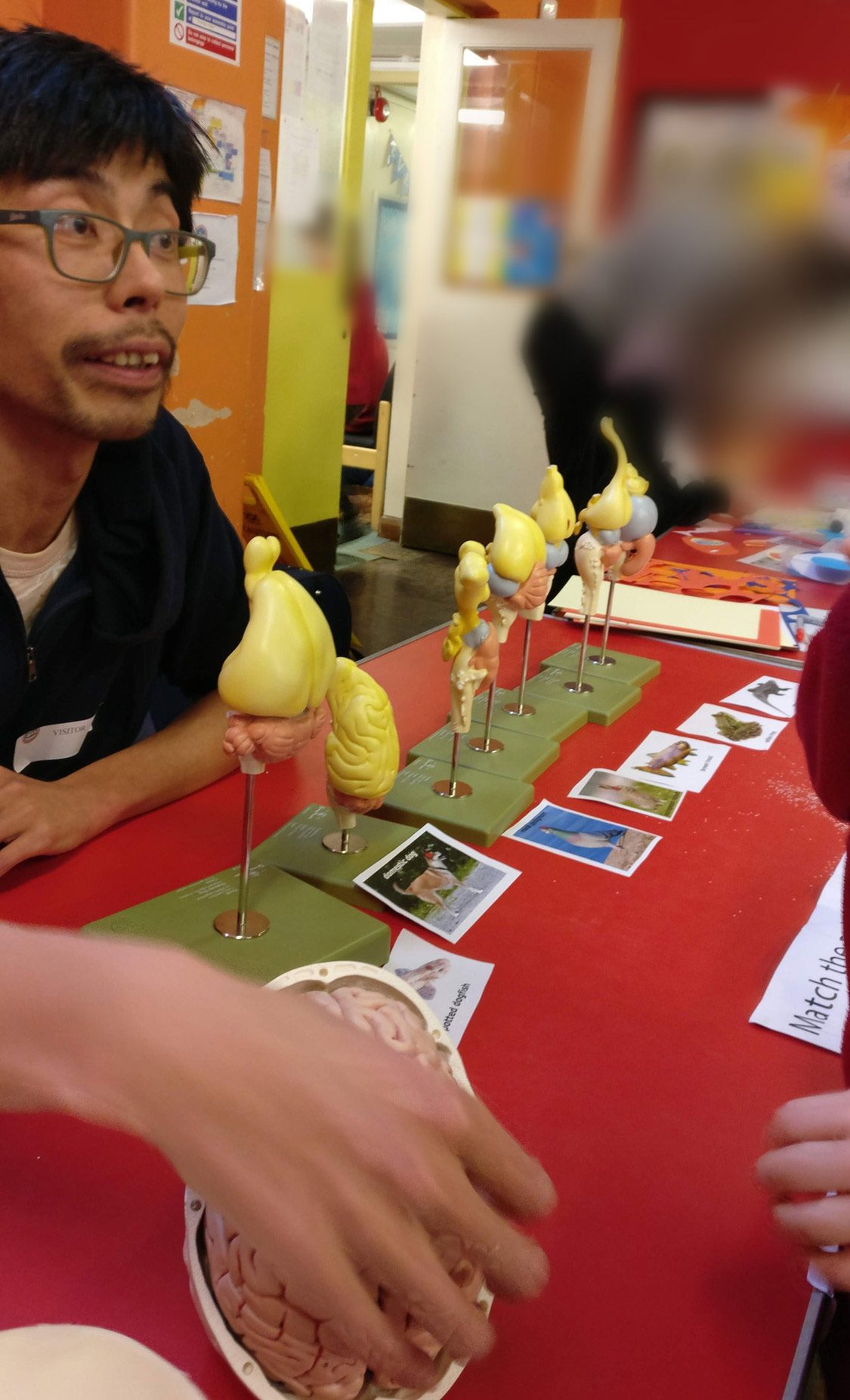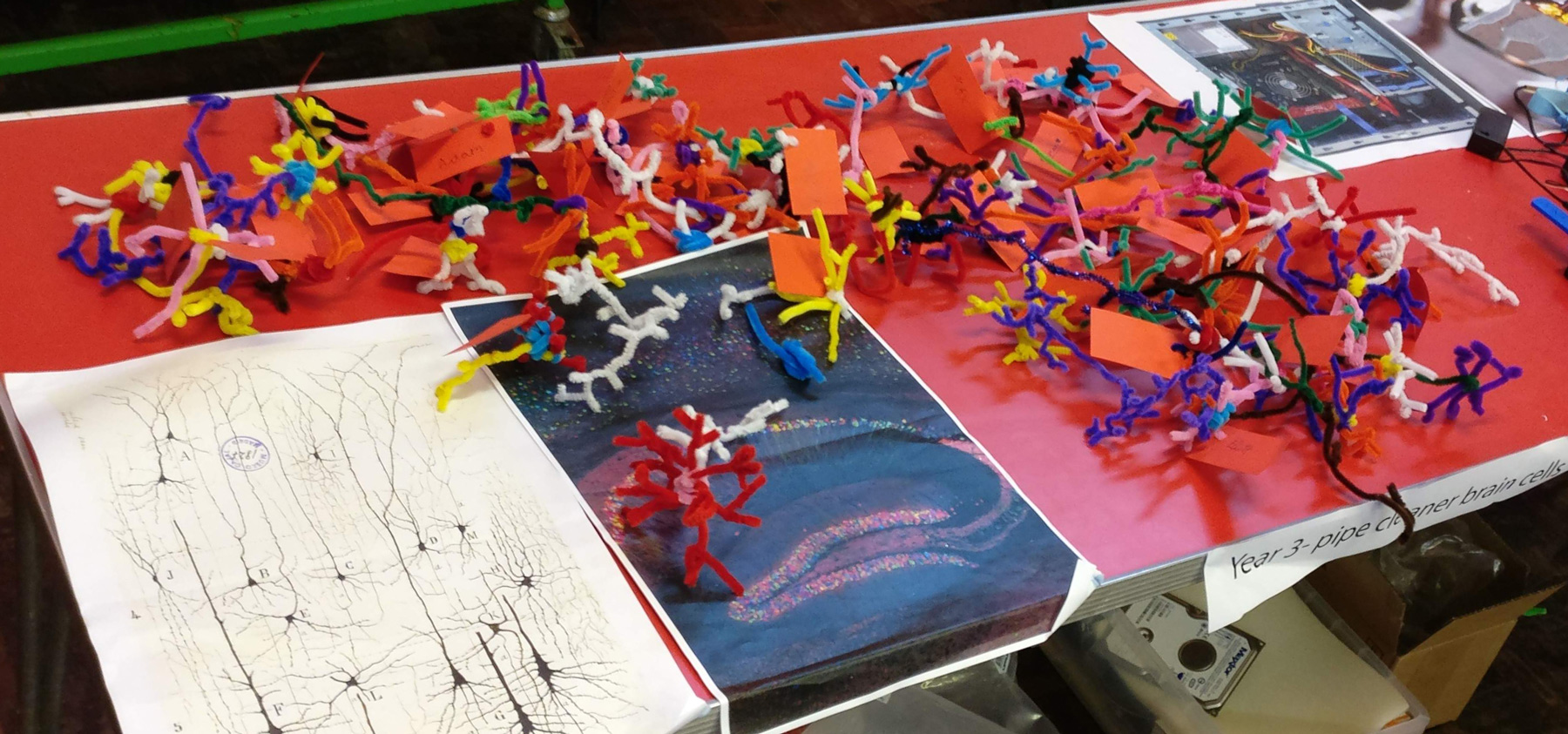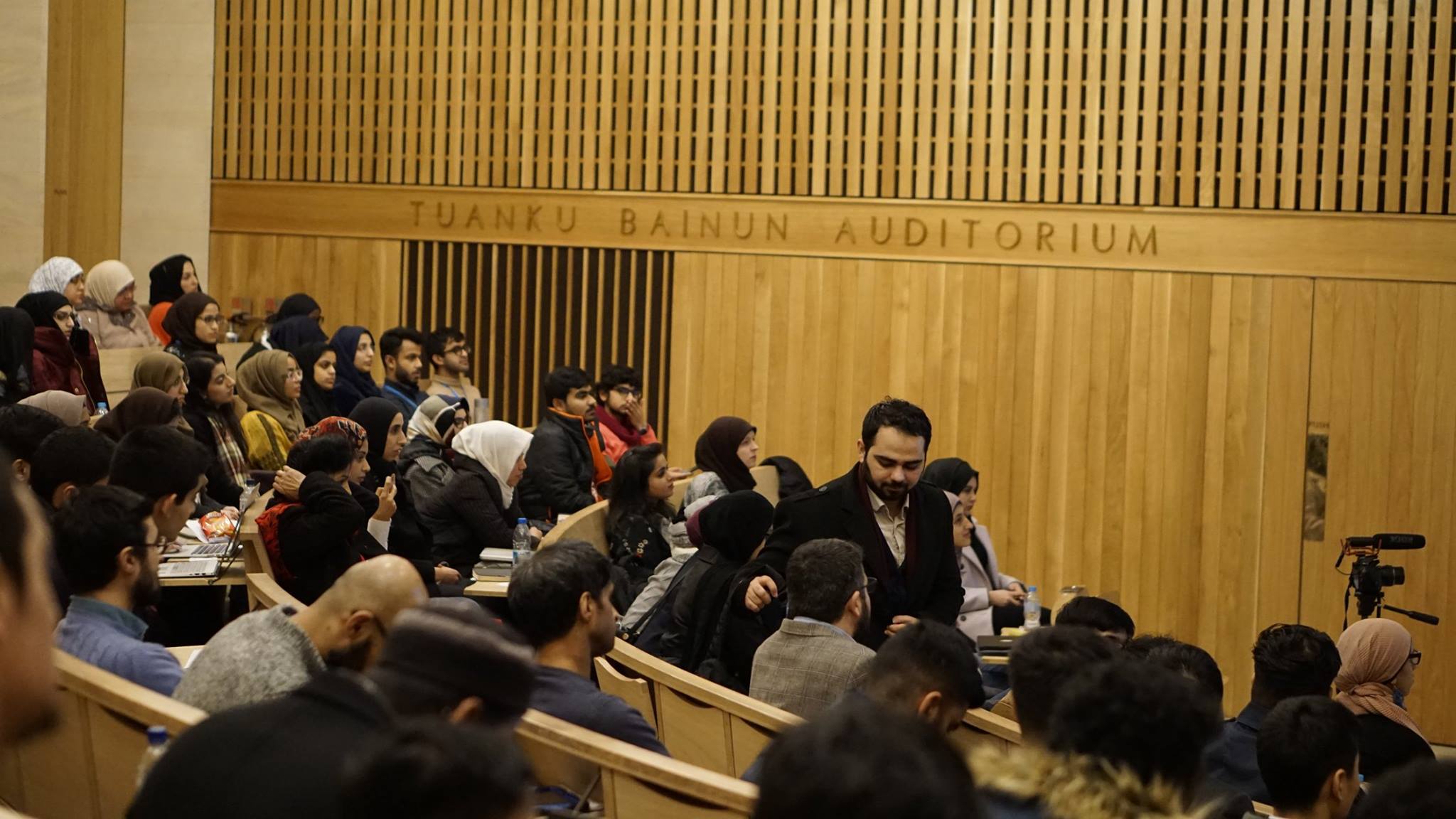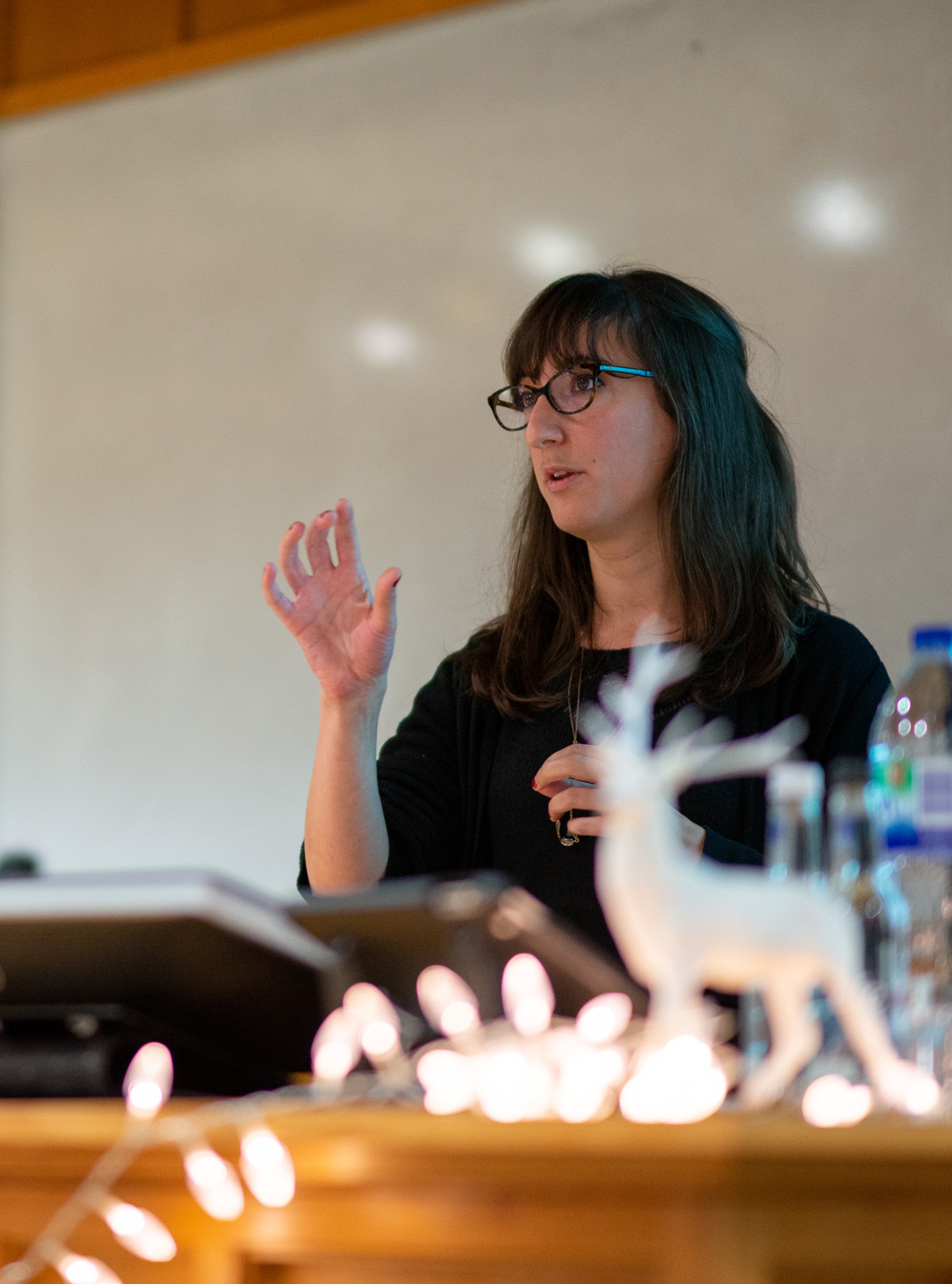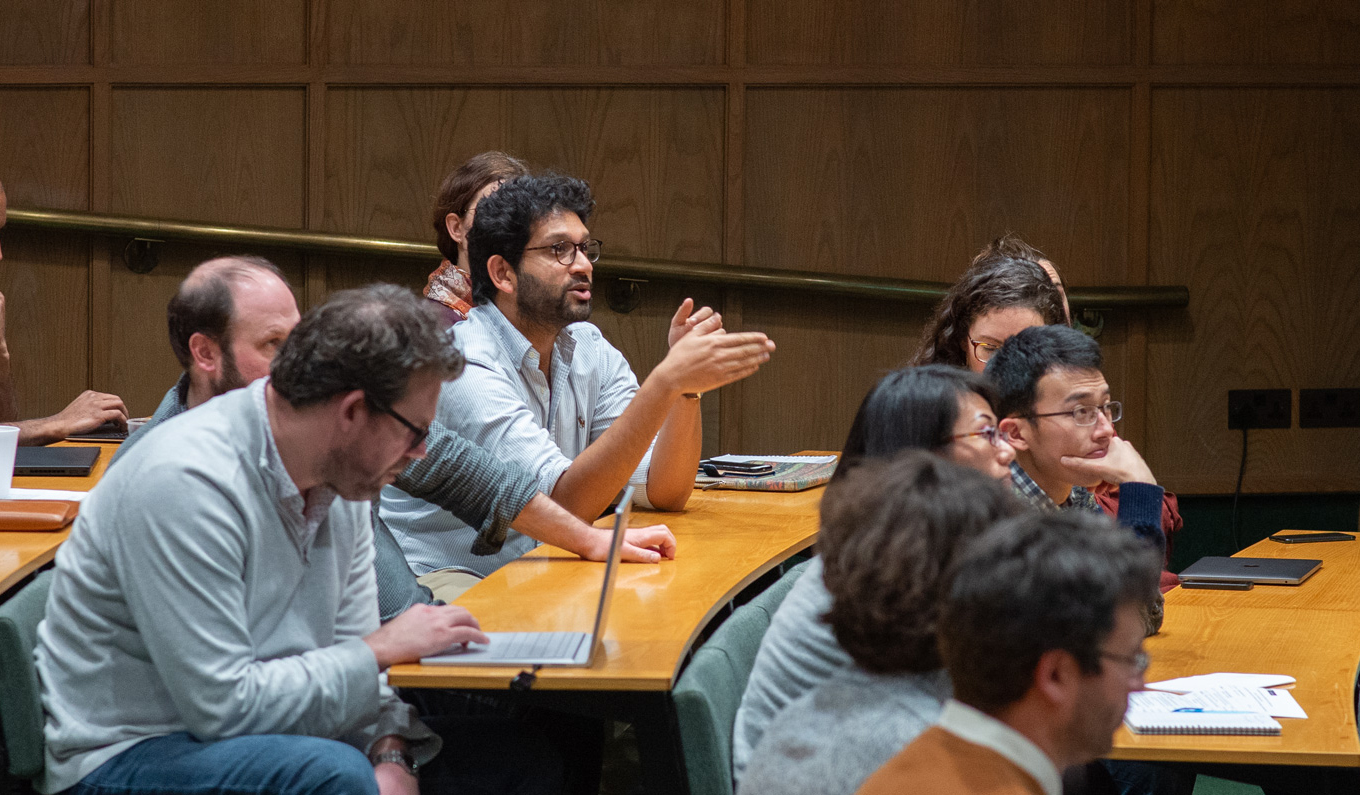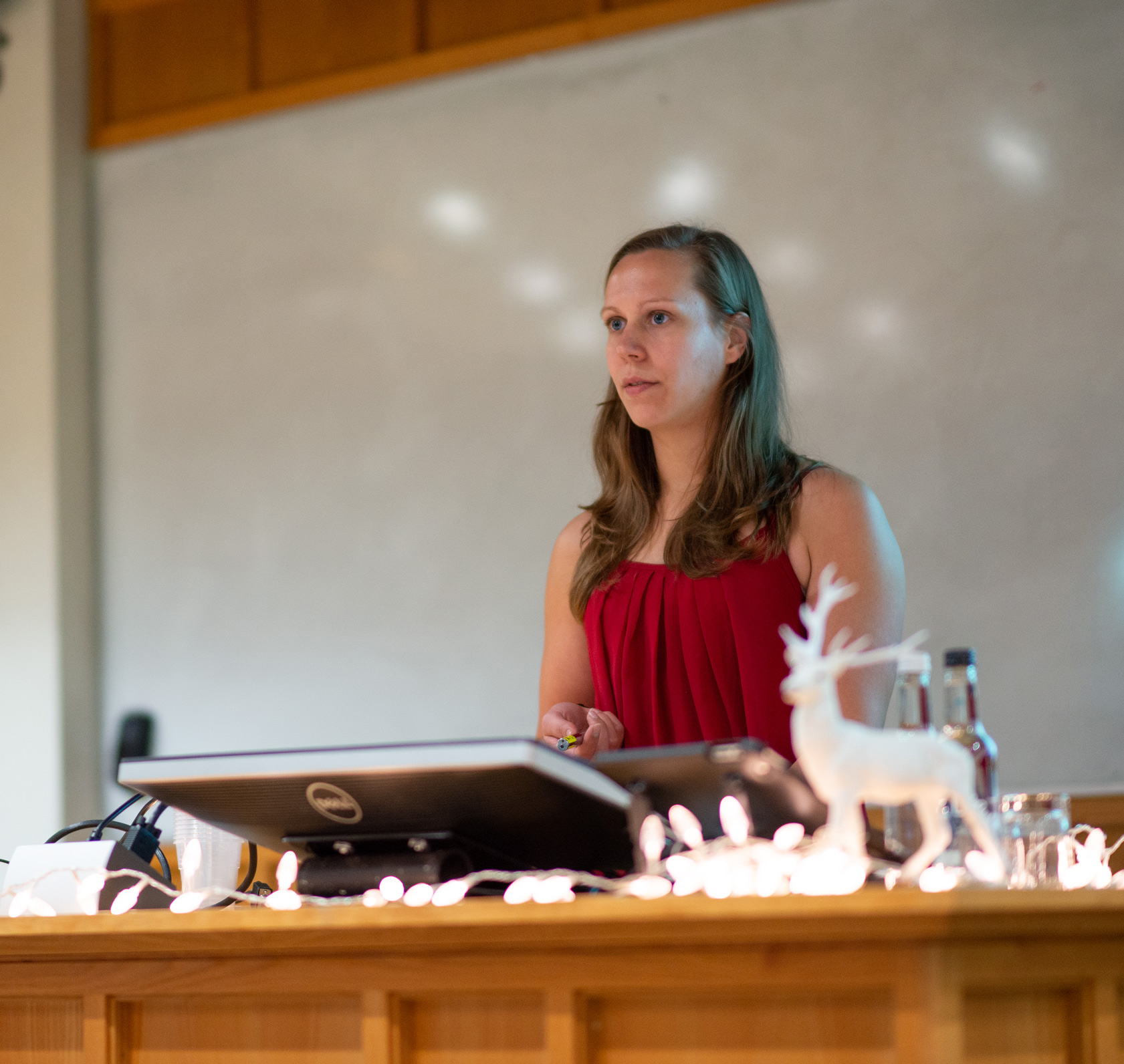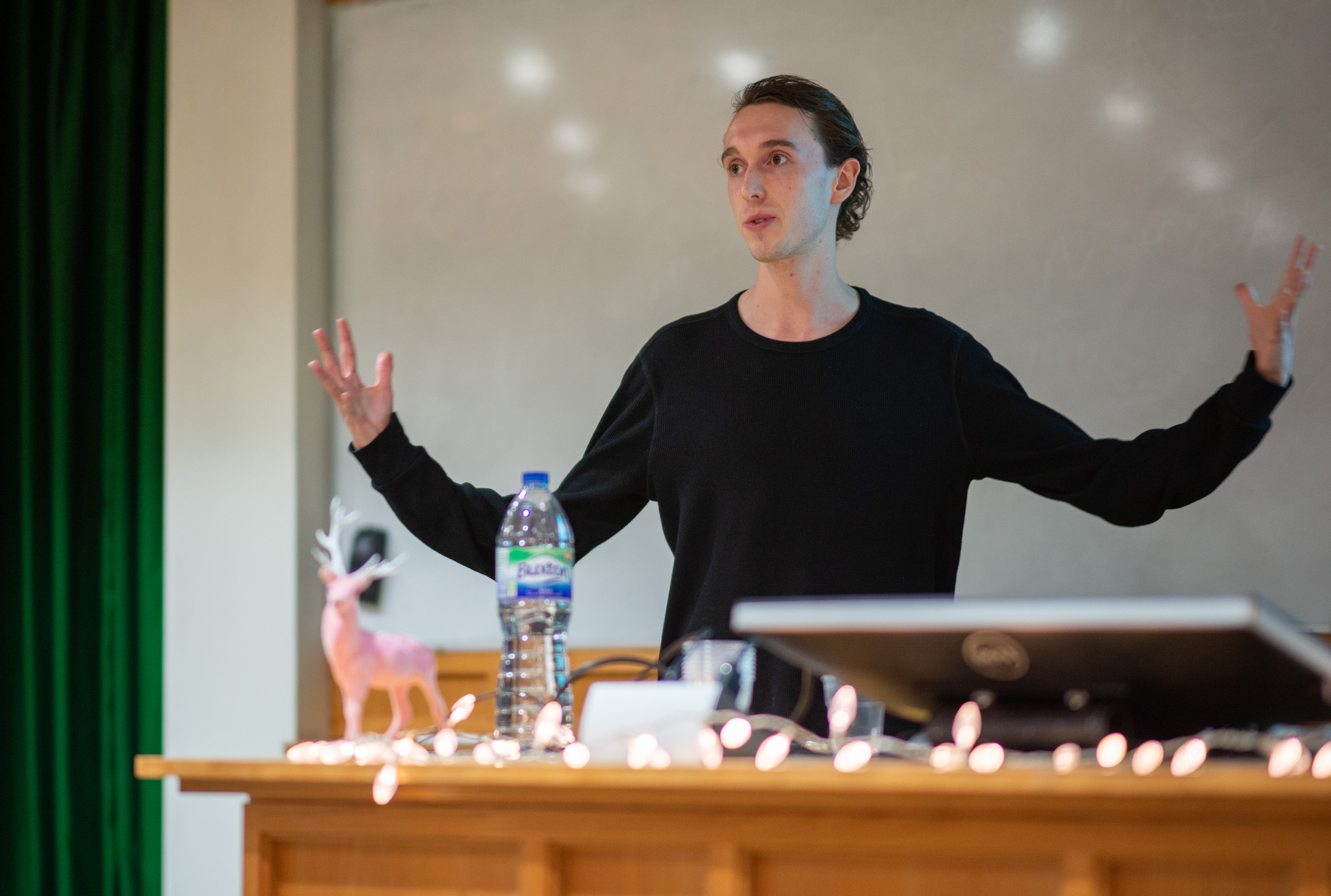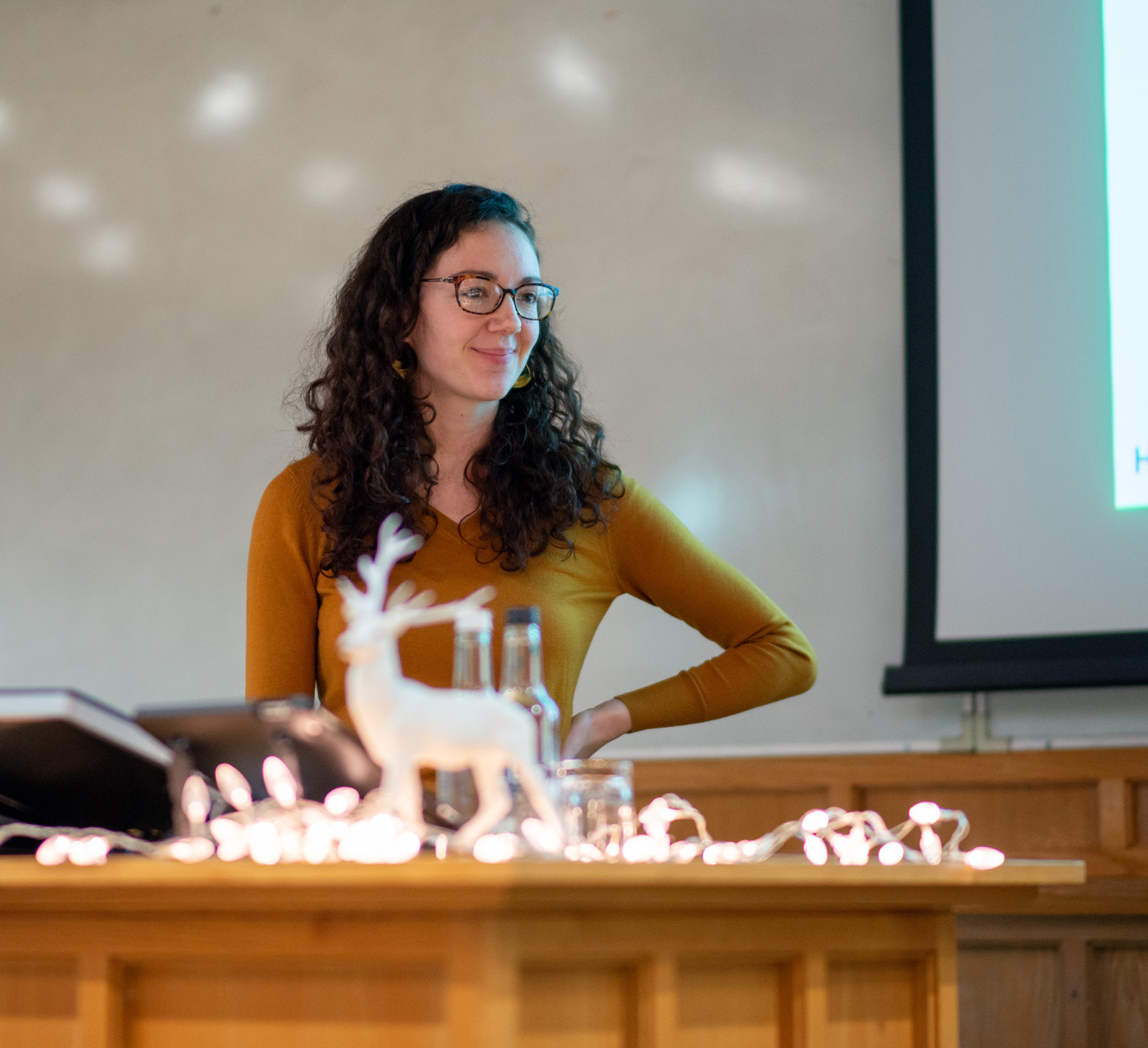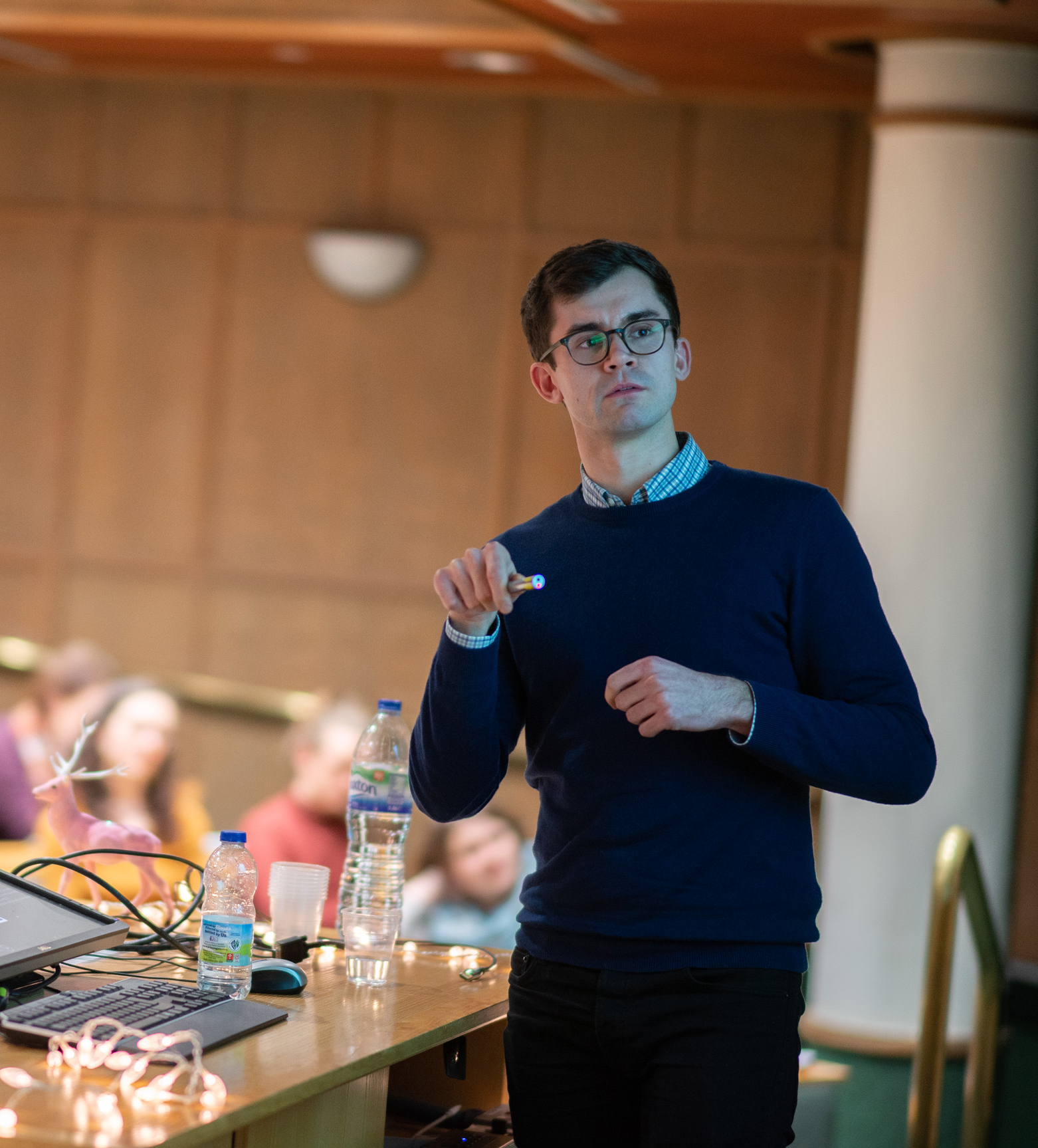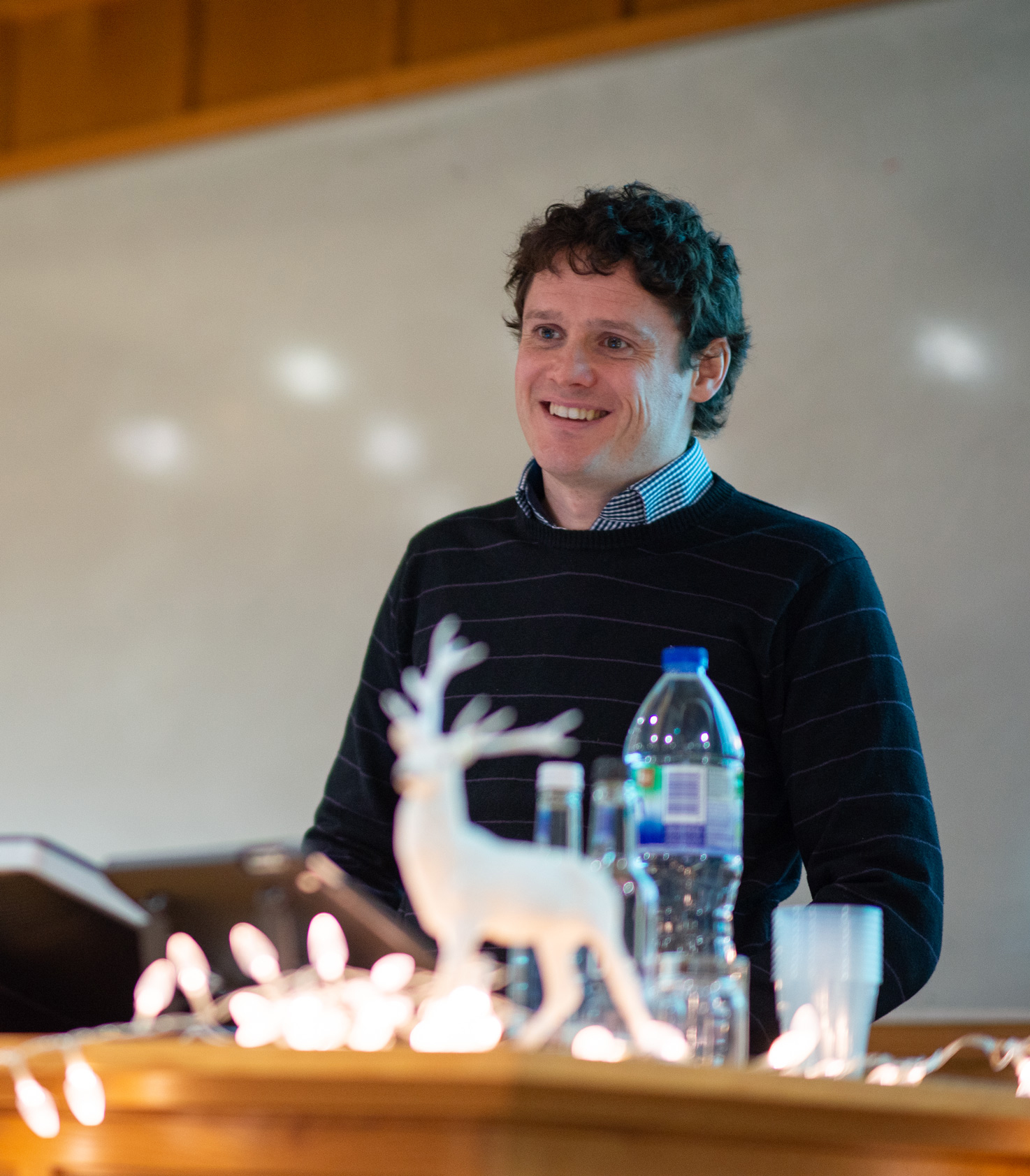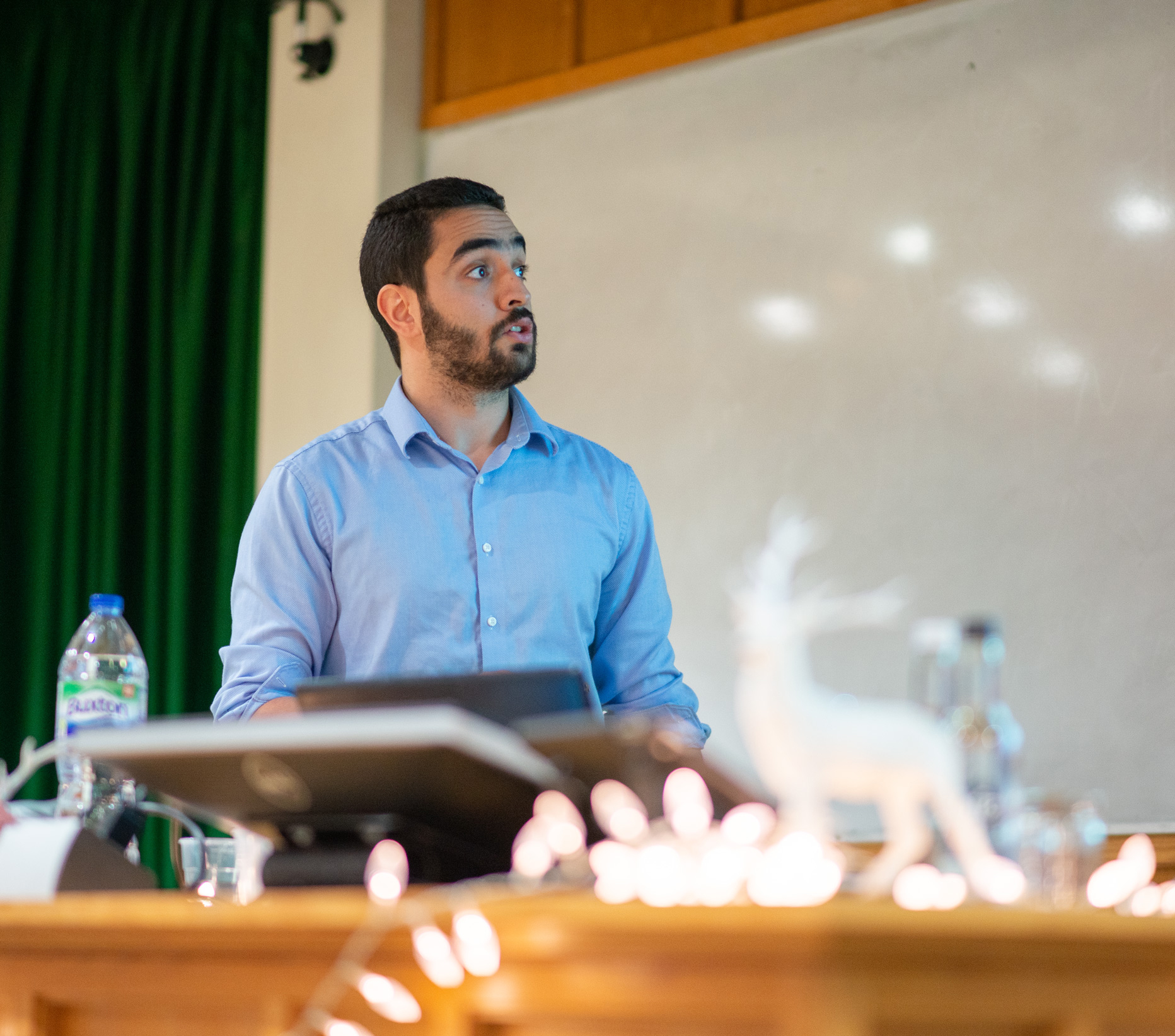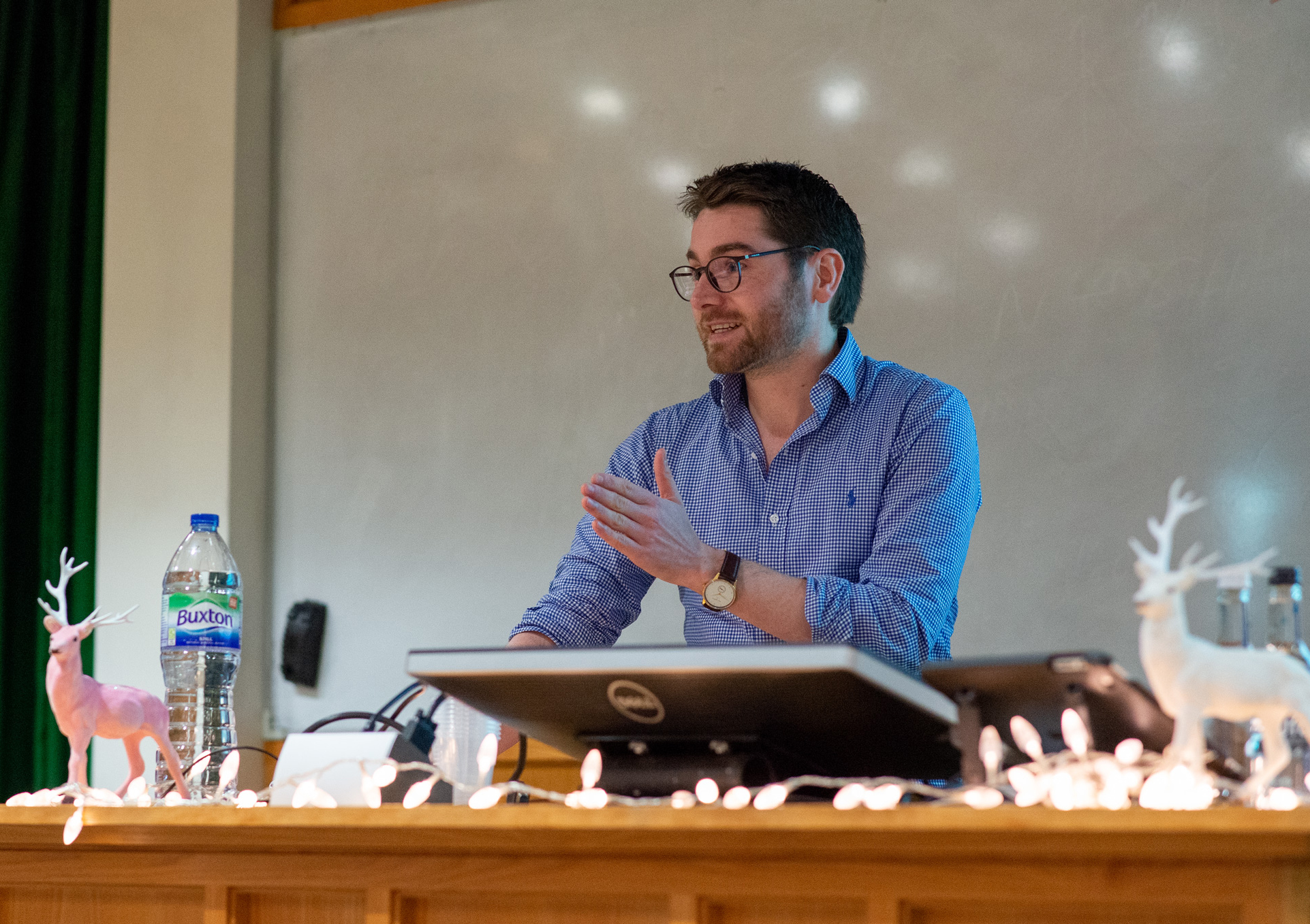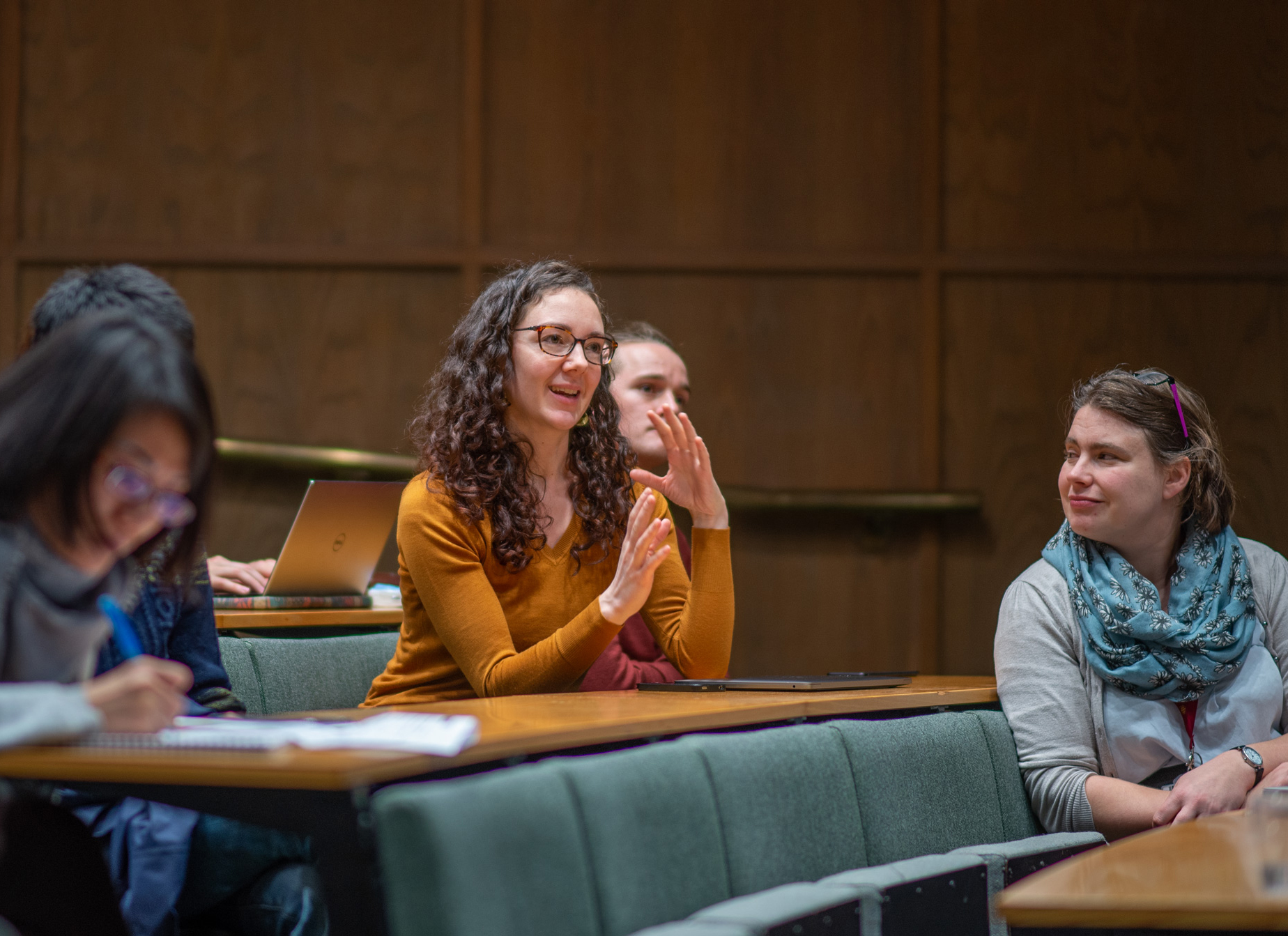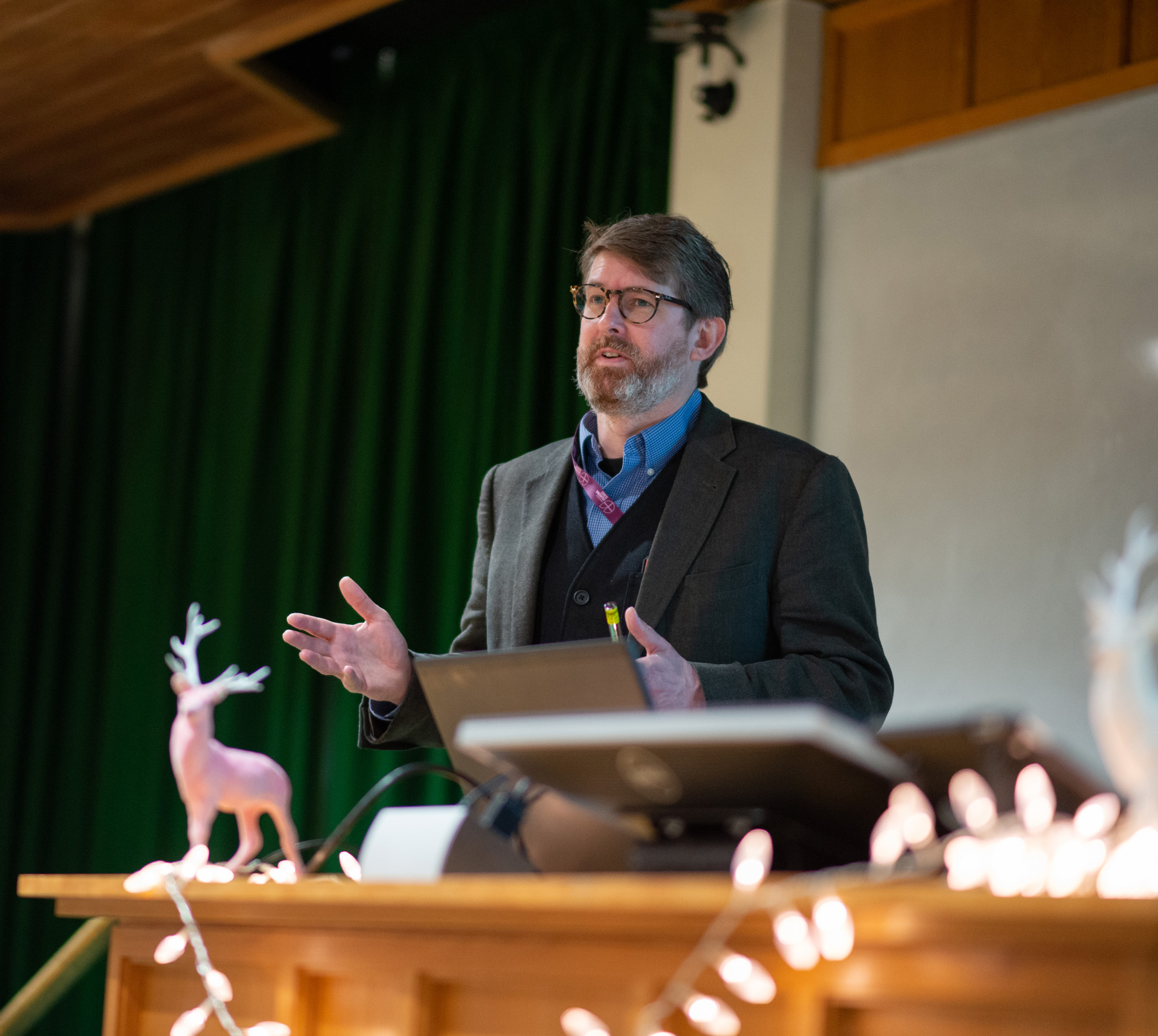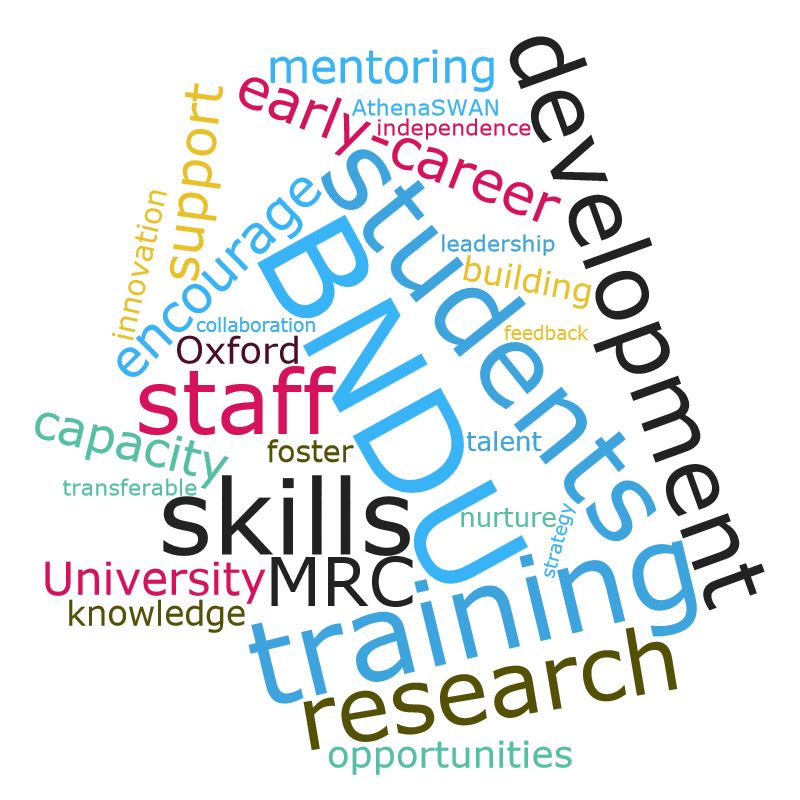
The Unit held its annual Training & Careers Development Event on Friday 29th March. Unit members and Oxford colleagues were treated to a range of enlightening presentations from expert speakers, each of which was accompanied by an engaging Q & A session.
Dr Paul Ashley, Head of Licensing and Ventures (Life Sciences) at Oxford University Innovation, gave the opening presentation and some valuable guidance on intellectual property and technology transfer in an academic setting. This was followed by a talk from Joe Edwards, Public Affairs Adviser at The Royal Society, in which he recounted the importance of linking research(ers) to scientific and health policy as well as some impactful ways and means to engage in it. Dr Rosemary Painter, Unit I.T. Officer, then gave some timely reminders of best practice in I.T. and data security. Unit Research Support Manager Ben Micklem completed the general session by reiterating progress made with the Unit’s new Data Sharing Platform, laying down a challenge to the audience to help craft its content and functionality.
In the first of two break-out workshops held after refreshments, Dr Rebecca Wright, Senior Editor of the journal Nature Neuroscience, narrated her career trajectory and gave her perspective on working in the academic publishing industry. This was supplemented with some well-received advice on transitioning from research to scientific editor roles. In the second workshop, Professor Heidi Johansen-Berg, Director of the Wellcome Centre for Integrative Neuroimaging at the University of Oxford, led an interactive discussion of strategies for enhancing academic profiles beyond publishing scientific papers.
Peter Magill, Chair of the Unit’s Research Training & Career Development Committee, commented “The delivery of specialised training and career support is a strategic priority for the MRC BNDU. Thanks to our guest speakers, we are well positioned to sustain and grow the Unit’s world-class infrastructure for research and innovation.”
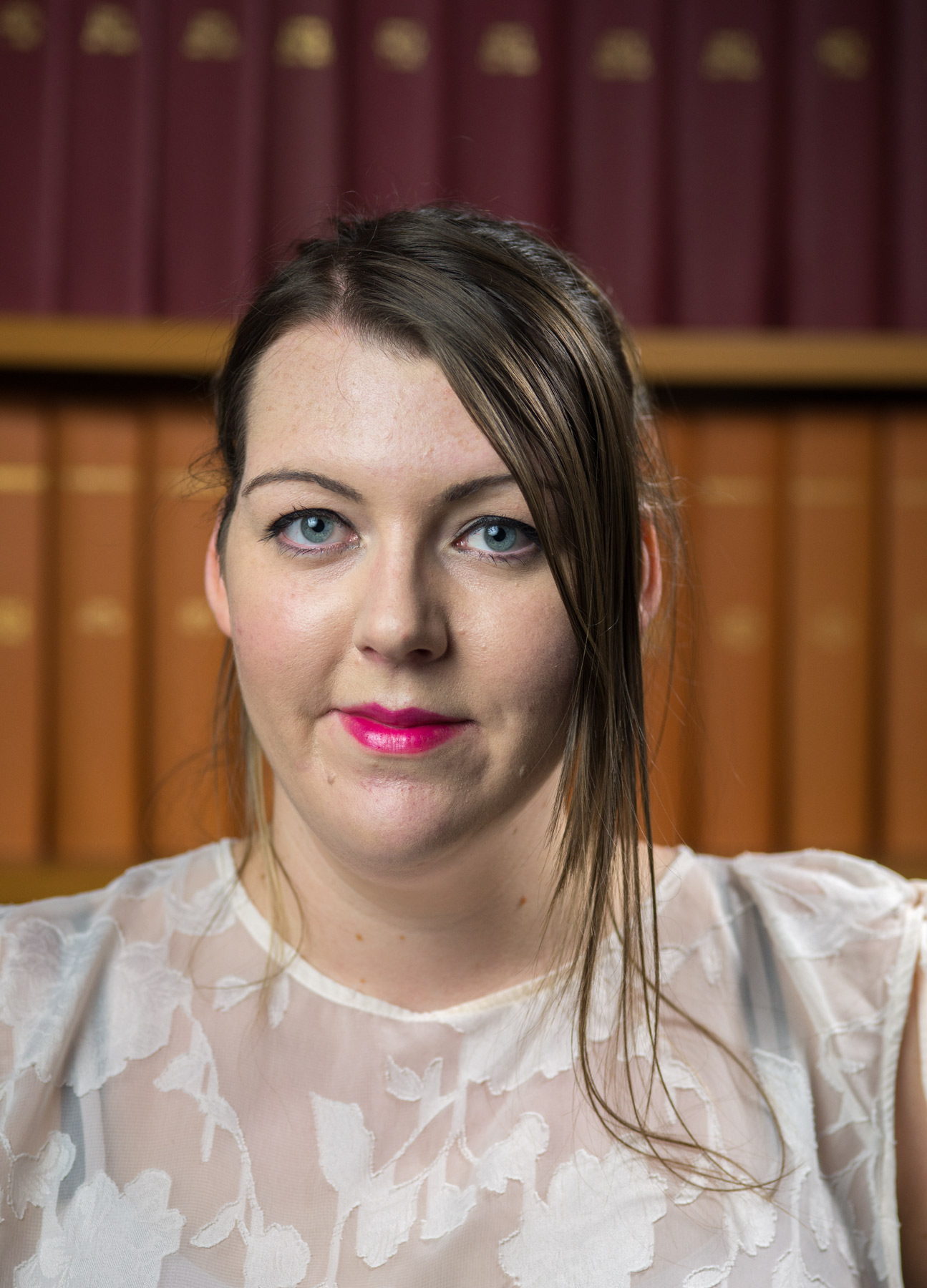
Last week, Unit members gathered to bid a fond farewell to Lauren Waite as she leaves the Unit to start her Ph.D. studies in behavioural neuroscience at The University of Nottingham.
Lauren has been working as a Research Technician as part of the Sharott Group and Magill Group, where she has provided specialist scientific support for numerous projects, including the neural basis of movement difficulties in experimental Parkinsonism.
Lauren’s mentor, Dr Andy Sharott, commented “It has been a pleasure to work with Lauren over the last year. She is a valued member of the team, contributing greatly to projects across the lab. While we're sorry to Lauren go, we are nevertheless delighted to have played a part in her training and career development, and we wish her every success in her Ph.D. project. We look forward to following Lauren’s future career.”
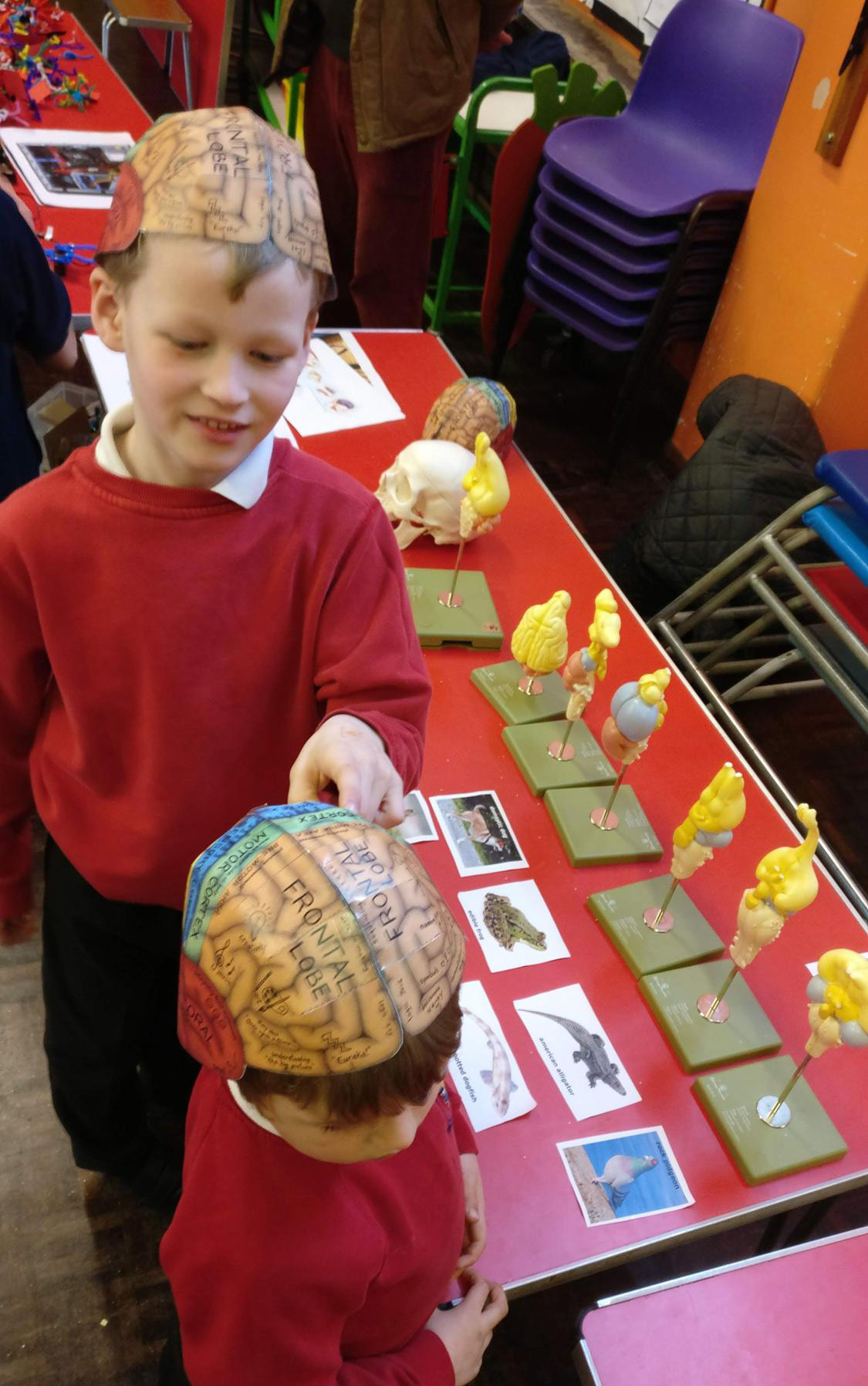
A team of Unit scientists - led by Research Support Manager Ben Micklem - recently visited a local primary school, St. Nicholas' in Marston, as part of the Unit's continuing support of British Science Week and International Brain Awareness Week.
On Wednesday 13th March, Flavie Torrecillos and Ben ran sessions for the two Reception classes. The sessions began with the 4- and 5-year-old pupils being guided through their exploration of a range of plastic models of vertebrate brains. The children were then shown the human brain model, and with a pupil volunteering to wear a 'brain hat' to illustrate the locations of different functional areas. Flavie and Ben then ran a live experiment to test whether the signals in Ben's muscles really were electrical, by using electrodes on the surface of his arm. The children were delighted to see that the tensing of muscles caused the robot claw to open 'on demand'.
On Wednesday afternoon, Guy Yona and Ben visited the two Year 3 classes. They delivered interactive sessions designed to teach the 7- and 8-year-old pupils about how a computer's hard drive stores information. The children were given decommissioned hard drives to open up, and were guided through their examination of the platters as well as the arm with its read/write heads. This was then compared to the ways the brain stores information. The children were also taught about the different parts of brain cells, including their 'listening' dendrites and 'talking' axons. At the end of the sessions, the children were helped to make their own model brain cells using colourful pipe cleaners.
On the afternoon of Friday 15th, Kouichi Nakamura and Ben ran a stall at the school's Science Fair. The Unit's collection of vertebrate brain models was on display, and pupils were challenged to match the photos of animals with their model brains. The robot claw, controlled by electrodes applied to the arm, was a big attraction, with queues of children wanting a turn. The opened hard drives, and pipe cleaner brain cells, were also on display, and children from all years of the school came to the stall and learned about information storage in computers vs. brains.

We are delighted to announce that the Medical Research Council Brain Network Dynamics Unit has launched its own bespoke Data Sharing Platform.
The new Platform will support the Unit’s ongoing initiatives for open research, and will host a range of primary data, metadata and related resources that can be readily downloaded by external users. In the first phase, the Platform will host electrophysiological recordings of neuronal activity, digital micrographs of brain tissue, scripts and tutorials for data analysis, files for 3D printing of bespoke equipment, and code for the computational modelling of neuronal networks.
Unit Director Professor Peter Brown commented “This new Platform underscores the Unit’s long-standing commitment to making research more accessible, inclusive and reproducible. The data and related resources we share will be important in helping us maximise the value of the public money invested in the Unit’s research”.
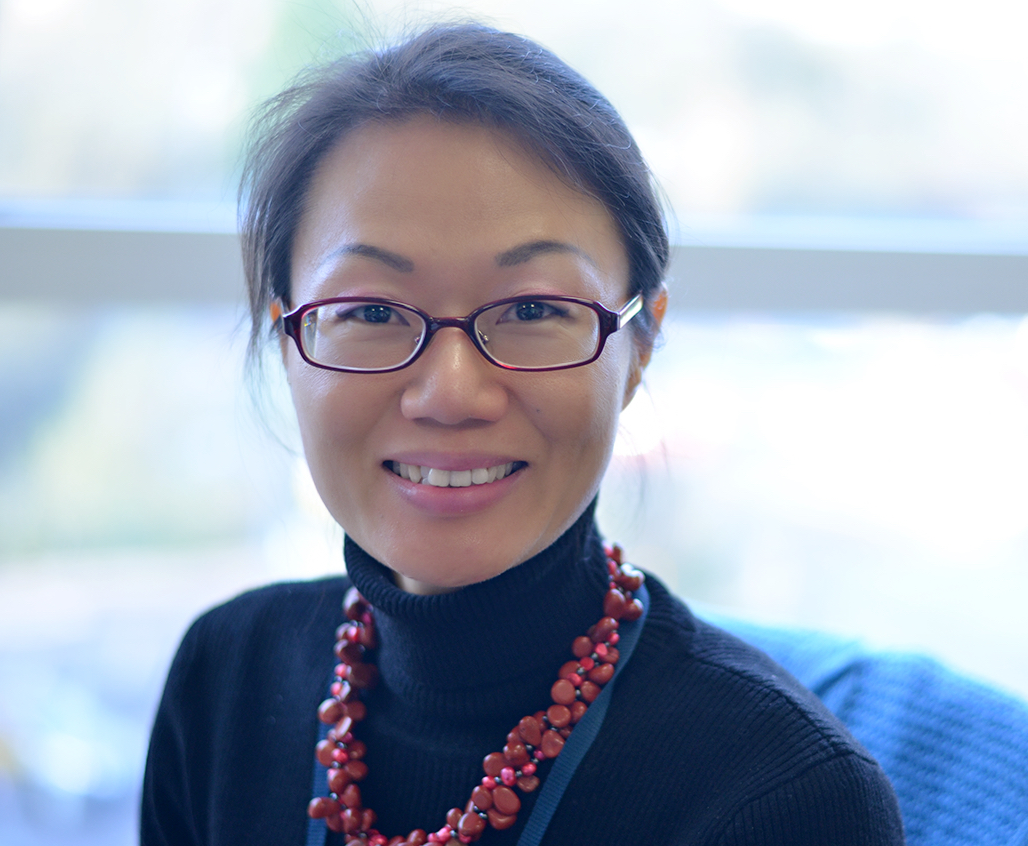
We are delighted to announce that Unit Group Leader Dr Huiling Tan has been selected to join this year’s SUSTAIN programme organised by The Academy of Medical Sciences.
SUSTAIN is a year-long programme offering interactive skills training and career development sessions, tailored mentoring and the chance to network with research leaders, all with a view to enabling female researchers to thrive in their independent research careers.
Huiling commented, “The SUSTAIN programme is a great opportunity to hone skills for leading a team, and to meet with and learn from inspiring female scientists.”
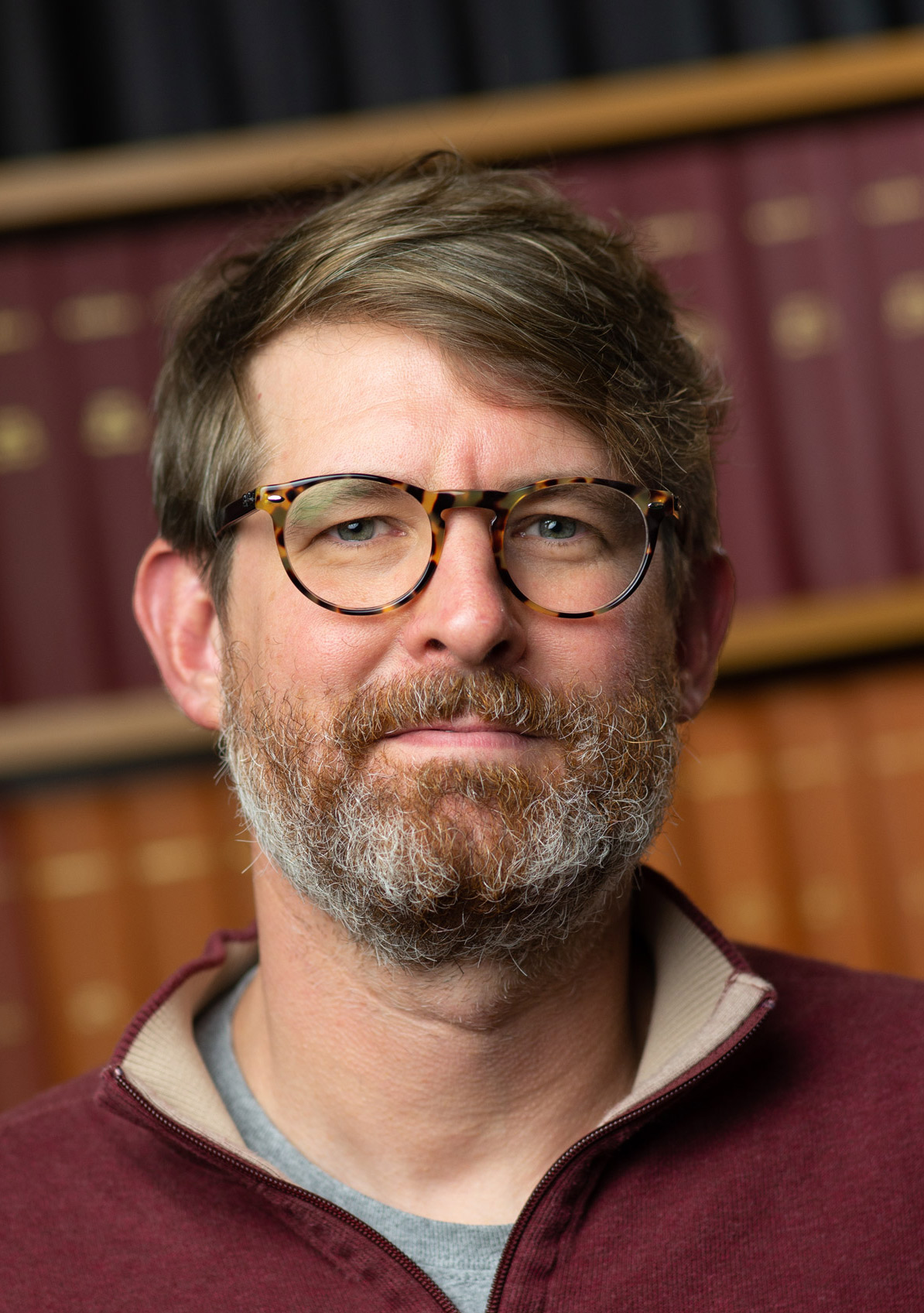
We are delighted to announce that Unit Group Leader Professor Tim Denison will deliver this year’s Graeme Clark Oration, Australia’s most prestigious free public science event.
Tim will speak to the subject of “Towards an Electronic Prescription?”, in which he will discuss the opportunities and challenges for interfacing electrical and biological circuits for the treatment of disease.
The Graeme Clark Oration celebrates advances in health and medical research that impacts people around the world. It showcases world leaders in health and medical research, and initiates a community-wide discussion around exciting developments in convergence science - where the life, physical and engineering sciences come together. Previous orations include those given by Nobel Laureate Sir Paul Nurse, and genomics pioneer Dr J. Craig Ventor.
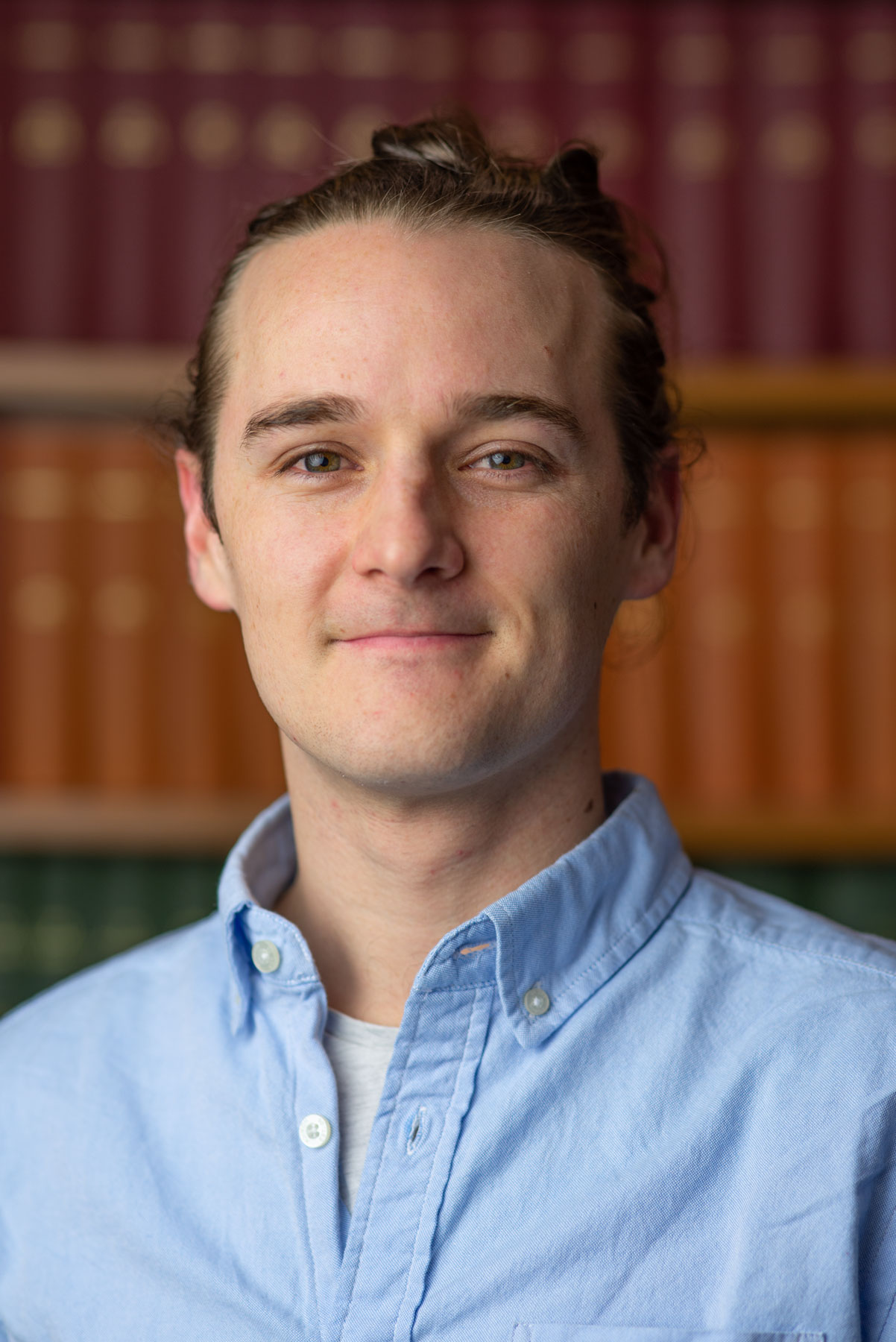
We are pleased to welcome Dr Tim West to the Unit as a Postdoctoral Neuroscientist in the Cagnan Group.
Tim originally graduated from University College London with a B.Sc. in Biomedical Sciences. He then went on to complete an M.Res. and subsequent Ph.D. at the UCL Centre for Computation, Mathematics and Physics in the Life Sciences and Experimental Biology (CoMPLEX), where he specialized in computational modelling and signal analysis of brain activity. During his doctoral research, Tim was based at the Wellcome Trust Centre for Neuroimaging, where he investigated the mechanisms underlying the emergence of pathological brain rhythms associated with Parkinson’s disease.
Here in the Unit, Tim’s research will be focused on elucidating the neuronal network mechanisms involved in tremulous movement associated with diseases such as essential tremor, Parkinsonism, and dystonia.
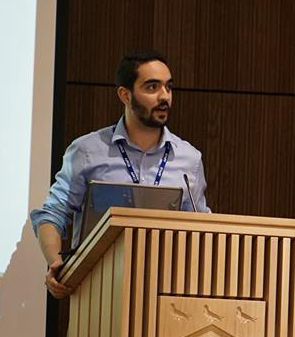
In continuing the Unit’s work in widening access and participation (WAP), Unit scientist Dr Mohamady El-Gaby recently made some key contributions to the inaugural Oxford Muslim Student Research Conference, held at Worcester College on 19th January 2019.
The aims of the Conference were to encourage Muslim students to pursue careers in academia, and to continue building a network bringing together Muslim academics and students. The conference included keynote talks from high-profile academics, showcased research presentations and posters from around the country, and hosted dedicated workshops to help foster skills in research and academia.
Mohamady helped organise the Conference, delivered a workshop on “Getting started in Academia: the Natural Sciences”, and gave a talk highlighting some of his neuroscience research in the Unit.
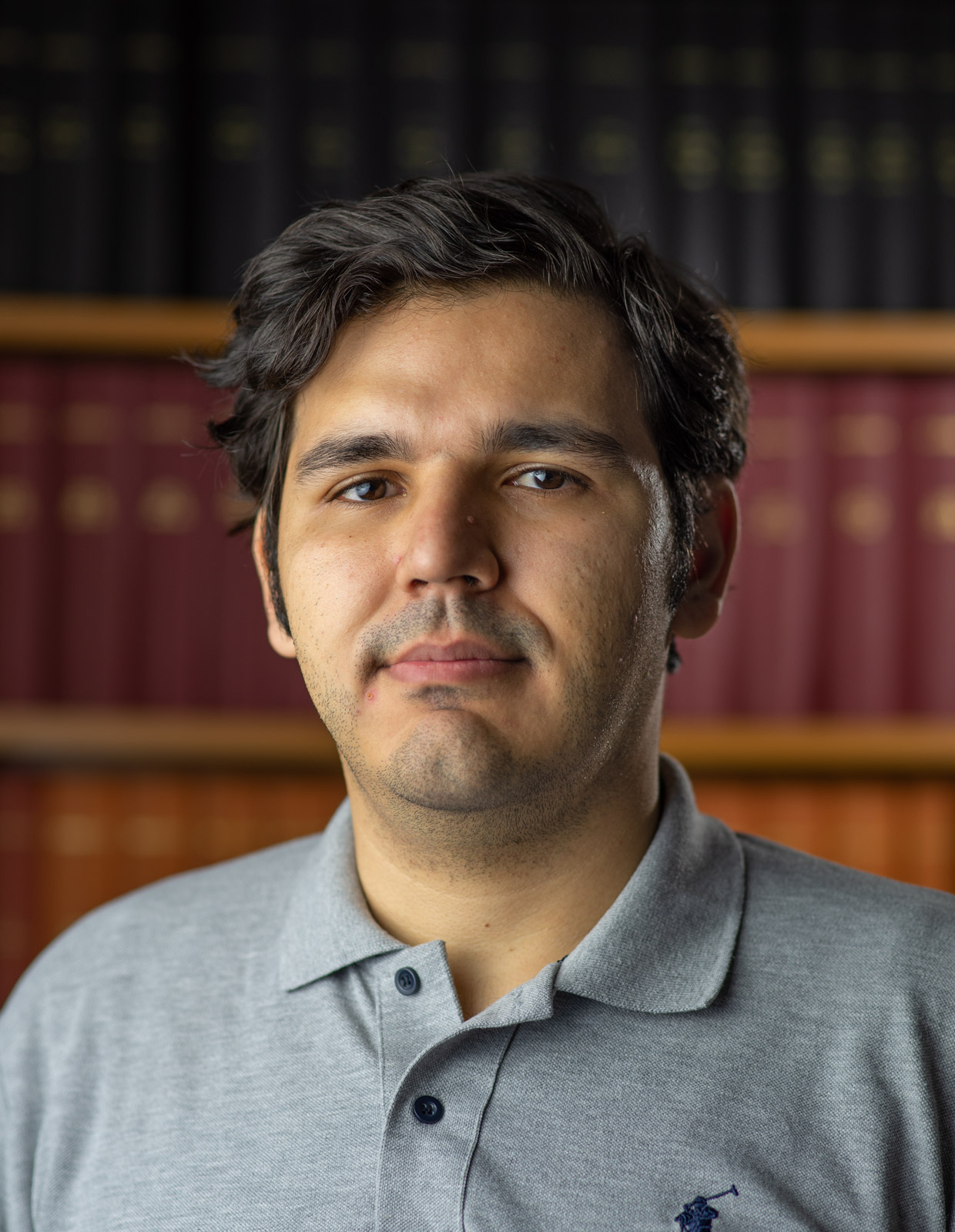
We are pleased to welcome Dr Majid Memarian Sorkhabi as a Postdoctoral Scientist in Tim Denison’s Group.
Majid completed his Ph.D. in Electronics Engineering at the University of Tabriz, Iran, where his doctoral research was focused on transcranial magnetic stimulation for the treatment of Parkinson's disease. For this purpose, Majid designed and built a prototype specifically designed to concentrate magnetic flux in the desired area of the brain, as validated in rodent models of Parkinsonism.
Here in the Unit, Majid's research will focus on developing non-invasive and minimally invasive therapies for neurodegenerative diseases.
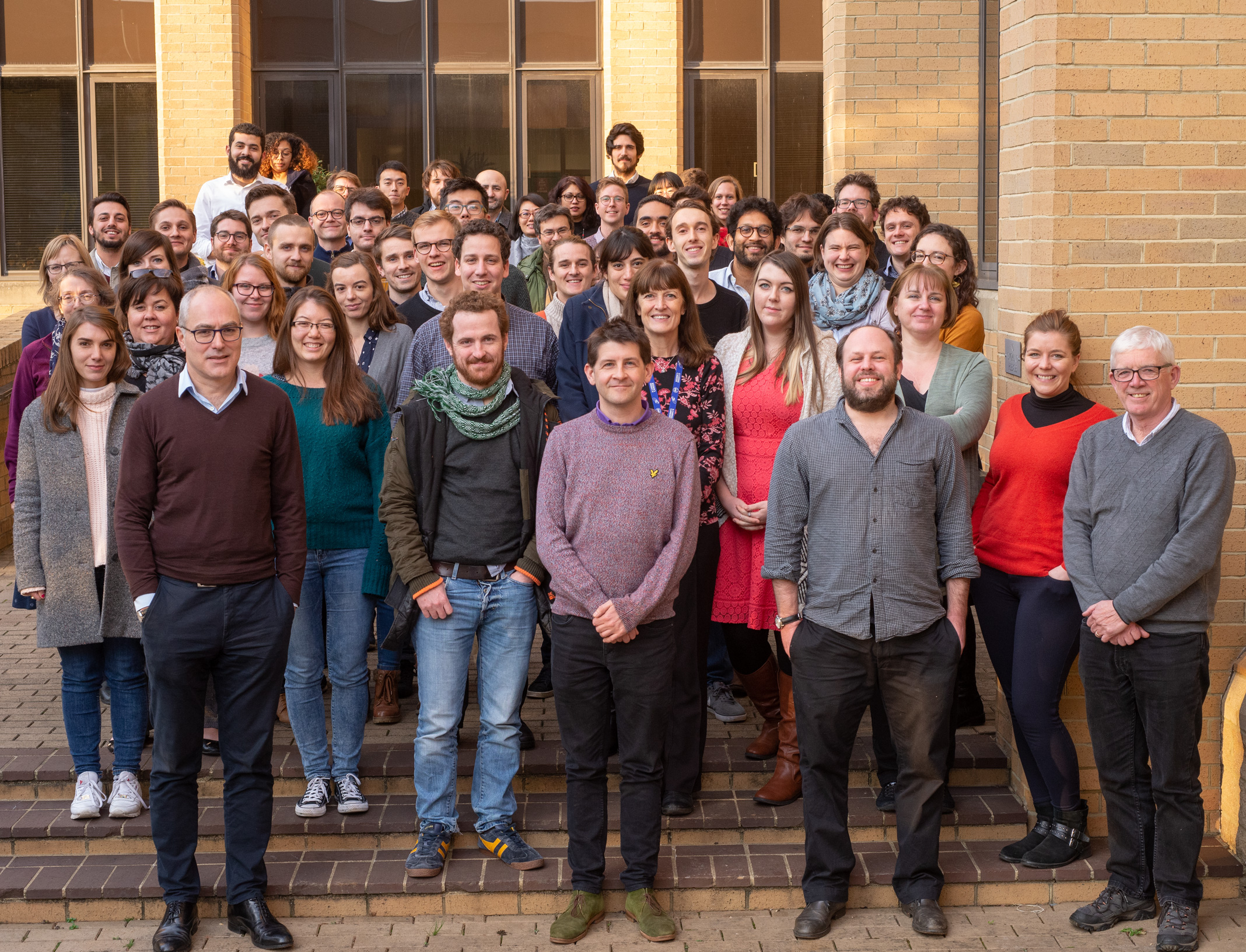
The Unit held its eighth Science Day on Friday 14th December 2018. Unpublished work and future research projects were the focus of discussion, and Unit members and visitors enthusiastically took the chance to offer the constructive criticism that is vital for nurturing collaborative, world-leading research.
There were 16 short talks and poster presentations, almost all of which were given by the Unit’s early-career scientists. Attendees were also treated to a Special Lecture by Professor Andrew Jackson of the University of Newcastle, in which he gave a discerning account of how local field potential dynamics can be exploited for neural interfaces.
Unit Director Professor Peter Brown commented “Another excellent Science Day. It was great to see how the Unit’s researchers are using their foresight and ingenuity to push back the frontiers of clinical, experimental and computational neuroscience.”
